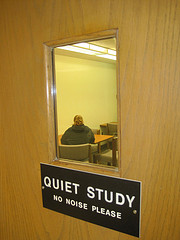 Success and failure are influenced by the people we spend time with.
Success and failure are influenced by the people we spend time with.
This was the conclusion of two scientiests who examined the data collected during the Framingham Heart Study. The Framingham study tracked more than 12,000 residents of Framingham, Massachusetts for 32 years. The residents reported every detail of their lives, including social connections.
When analyzing this data, the scientists discovered that things we normally consider to be caused by an individual’s actions, are actually infectious to a degree.
For example, obesity is infectious. If a friend became obese, then a person’s risk of becoming obese increased by 171 percent. If family members became obese, then the risk increased as well.
The researchers also discovered that these sympathetic infections were present in other situations. For instance, when one person started to drink more alcohol, his or her friends and family increased their consumption as well.
In other studies, these same scientists have found that the “pattern of contagion” applies to drug use, sleep deprivation, and depression.
But it was not all bad.
There was also evidence that self-control was contagious. When one person gave up smoking, the odds of their family and friends quitting also increased.
The implication of all this is that both bad and good habits can spread from person to person like germs, and no one is entirely immune.
Application to Studying
The scientific basis for all this appears to be what are known as mirror neurons.
Mirror neurons are specialized cells in the brain that are designed for the sole purpose of keeping track of what other people are thinking, feeling, and doing.
Obviously, humans are social creatures, and it is clear that being able to understand the actions of and to empathize with other humans is important for the creation of a strong social fabric.
Unfortunately, these same neurons can cause you to pick up “bad” habits if you are around people who display those habits.
So, if you are around people who complain about the bar exam, who are negative about their chances for success on the bar exam, or who have terrible study habits, you might want to distance yourself from them until the bar exam is over.
Also, studies show that if you spend a few minutes at the beginning of your day thinking about your goals, you are more likely to achieve them and not be derailed (or infected) by the goals of others that are contrary to your own.
ACTION STEP: When you wake up each day, contemplate what you plan to study/practice that day, how long you will spend doing it, and why it is important to you.
***
Source: The Willpower Instinct
P.S. -- Want a FREE copy of my Bar Exam Mind audiobook?
You can get a free copy of my audiobook when you sign up for a free trial at Audible. Get the details by clicking here.





